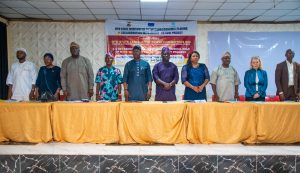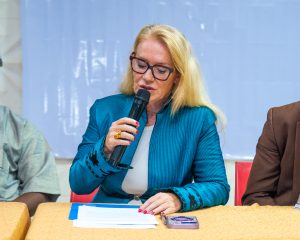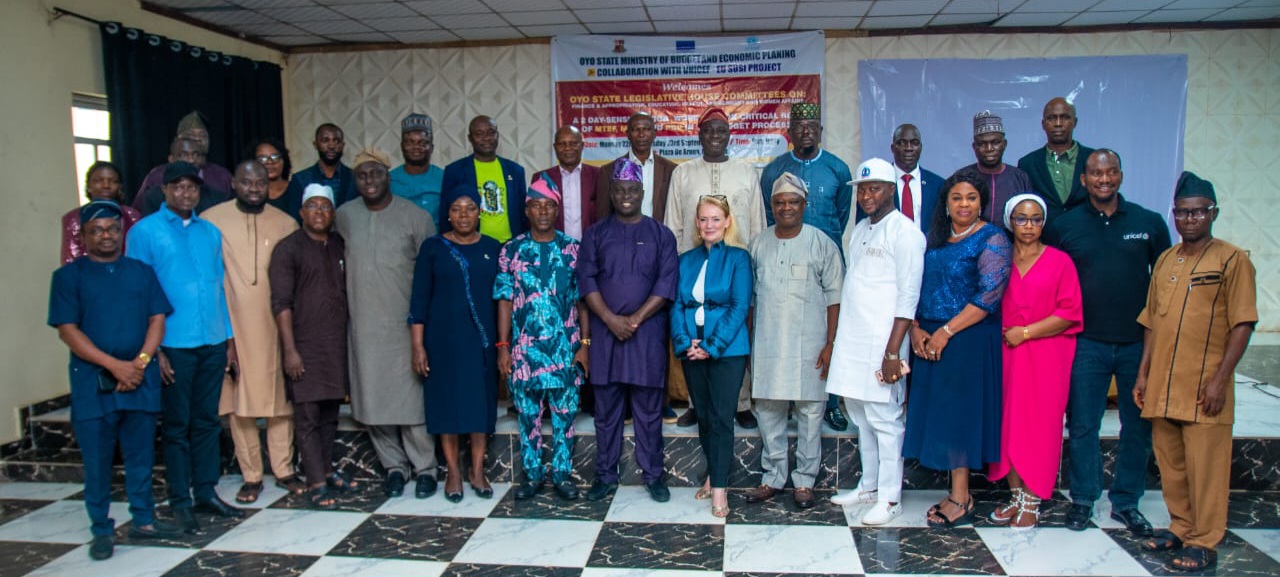The Oyo State Government, in collaboration with the United Nations Children’s Fund (UNICEF) and the European Union-funded Sustainable Social Protection Systems in Nigeria (EU-SUSI) project, has convened a two-day sensitisation workshop for members of the State House of Assembly to strengthen programme-based budgeting (PBB) in the social sector.

The workshop, held in Oyo Town brought together lawmakers, senior government officials, and development partners to review the Medium-Term Expenditure Framework (MTEF), the Fiscal Strategy Paper (FSP), and the Medium-Term Sector Strategy (MTSS), which will guide the state’s 2026 budget.
Commissioner for Budget and Economic Planning, Prof. Musibau Babatunde, explained that the process was critical to improving budget performance in key social sectors, particularly education and health.

He noted that the validation exercise with legislators would help ensure transparency and inclusiveness in budget planning.
“This framework will drive Oyo State’s 2026 budget and determine capital expenditure in education at primary, secondary, and tertiary levels and in healthcare, from primary to tertiary institutions,” Babatunde said.
“By involving lawmakers early, we are ensuring ownership and smoother passage of the budget when presented to the House.”
Chief of UNICEF Lagos Field Office, Ms. Celine Lafoucriere, in her opening remarks, commended Oyo State for showing leadership in institutionalizing the MTSS process, launching its first Social Protection Policy, and aligning reforms with Agenda 2040.
“At its core, this is about children,” Lafoucriere said. “How resources are planned, allocated, and tracked will determine whether every child in Oyo can survive, learn, and thrive. We urge the Assembly to sustain and increase allocations for children, ensure funds are used efficiently, and champion evidence-based policies.”
She noted that in the 2025 budget, education received ₦145 billion (21% of the total budget), health ₦59 billion, and social protection ₦2.18 billion a fourfold increase in two years.
However, challenges remain, with only 37% of one-year-olds fully immunized, one in three children stunted, and over four million people still practicing open defecation.
Also speaking at workshop, UNICEF’s Programme and Social Policy Manager, Muhammad Okorie, described the shift as a “big transformation,” saying it would ensure budgets are based not on assumptions but on clear programmes designed to solve specific problems across sectors.
The sensitisation workshop is part of ongoing efforts under the EU-SUSI project to institutionalize inclusive, transparent, and results-oriented budgeting processes in Oyo State.
Okorie stressed that programme-based budgeting would make Oyo’s fiscal planning more inclusive, evidence-driven, and focused on tangible results for citizens.
In his welcome address, the Permanent Secretary, Ministry of Budget and Economic Planning, Mr. Tunde Ayanleke, who was represented by Director of Micro-Economic Planning, Mr. Ademola Adediran emphasized that the workshop was meant to strengthen collaboration between the Executive and Legislature so that “every kobo of public funds is used effectively to improve education, healthcare, and inclusive growth.”
Lawmakers present, including members of the House Committees on Finance, Appropriation, Health, Education, and Environment, pledged to support the reforms.
They noted that programme-based budgeting would improve oversight, enhance budget realism, and ensure that projects captured in the state budget have higher chances of execution.

